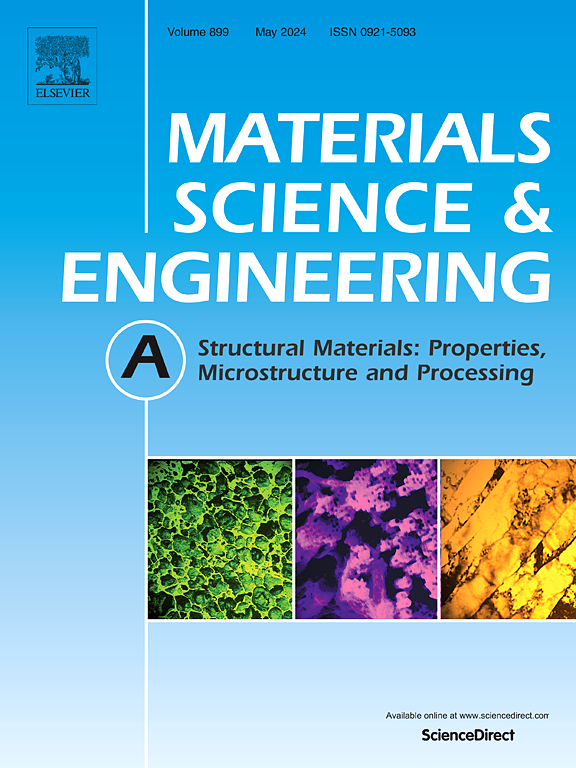Effect of annealing temperature on microstructure, work hardening and softening behavior of cold-rolled Mg-8Li-3Al-0.3Si alloy
IF 6.1
2区 材料科学
Q1 MATERIALS SCIENCE, MULTIDISCIPLINARY
引用次数: 0
Abstract
In this article, the effect of annealing temperature on the microstructure and mechanical performance of cold-rolled dual phase Mg-8Li-3Al-0.3Si (LAS830) alloy was systemically investigated. Meanwhile, the regulation of annealing temperature on the work hardening and softening behavior of the cold-rolled LAS830 alloy was discussed. The results show that the dislocation density significantly decreases and the nanoscale MgLi2Al phase disappears for the cold-rolled LAS830 alloy after annealing at 200 °C for 1 h, causing a decrease in the yield strength (YS) and ultimate tensile strength (UTS). However, the MgLi2Al phase precipitates again when the annealing temperature increases to 240, 280 and 320 °C. The volume fraction of the MgLi2Al phase increases with increasing annealing temperature from 240 to 320 °C, while the volume fraction of AlLi phase gradually decreases due to the dissolution into β-Li phase, which results in an improvement of YS and UTS as a result of solution strengthening and secondary phase strengthening. The work hardening rate of the cold-rolled LAS830 alloy in the stage Ⅲ significantly decreases after annealing at 200 °C due to the reduction of dislocation density, but it gradually increases with the improvement of annealing temperature, this is mainly ascribed to the growth of recrystallized grains and an increase in the volume fraction of MgLi2Al phase. Moreover, the high density of dislocations is generated in the LAS830 alloy after rolling at room temperature, which provides a significant driving force for static recovery to occur, thereby improving the softening effect of alloy. The softening effect of the cold-rolled LAS830 alloy significantly decreases after annealing at 200 °C, and it further decreases with increasing the annealing temperature, which is mainly related to the grains size and secondary phase content in the alloy.
求助全文
约1分钟内获得全文
求助全文
来源期刊

Materials Science and Engineering: A
工程技术-材料科学:综合
CiteScore
11.50
自引率
15.60%
发文量
1811
审稿时长
31 days
期刊介绍:
Materials Science and Engineering A provides an international medium for the publication of theoretical and experimental studies related to the load-bearing capacity of materials as influenced by their basic properties, processing history, microstructure and operating environment. Appropriate submissions to Materials Science and Engineering A should include scientific and/or engineering factors which affect the microstructure - strength relationships of materials and report the changes to mechanical behavior.
 求助内容:
求助内容: 应助结果提醒方式:
应助结果提醒方式:


